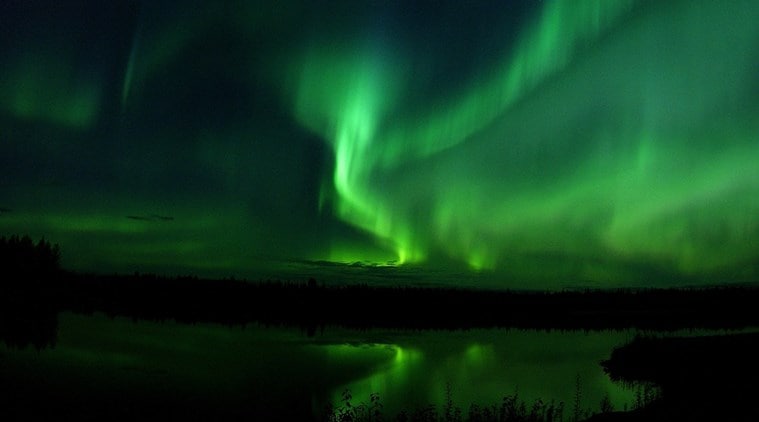
I woke up at three a.m., wide awake, caffeinated awake. I lay still for a moment deciding whether or not to get up when I realized I couldn’t get up. My limbs felt detached, and those that remained felt shredded, like some internal razor slowly ran against the muscular grain. I don’t know why, but my mind was wide awake, and my body was unresponsive. I’m not sure even if I had to use the bathroom if I’d have been able to gather the forces to get up. I sighed and thought, well, whatever, I can change the sheets in the morning.
Then it became a challenge. I felt like that roach in Kafka’s story, or an old college roommate from freshman year who would tell me at five a.m. when I was leaving to do a radio show, that he’d be up soon, and I’d come back at noon and he hadn’t moved. But Steve simply drank himself to paralysis; my dark-of-night stagnancy is psychological. My brain has finally figured out I’ve been stuck in neutral for three years or so and it has finally decided to metaphorically do me in so as to build up some appreciation for my normal ability to, you know, stand.
But I couldn’t. I looked through the skylight and noted enough light to know the moon must be out. I should be looking at the light from the sun, not the moon, I thought. I divined my head to turn toward the clock. 3:15, or as my generation likes to call it, “Amityville Horror Time,” when the sounds of ghosts woke James Brolin up, it was always, always 3:15, the time of the original murders in his house.
I thought of Neil Diamond. What’s that song? I wondered. I hummed it a while and realized, “Holly Holy.” “Call the sun in the dead of the night and that sun’s gonna rise in the sky,” I said quietly. Hmmm. Neil was an optimist, to be certain. But so was I once, and so I can be again. If I could just get out of neutral here, I’d be fine. “Call the sun in the dead of the night and that sun’s gonna rise in the sky!” I said again, quietly.
Hmmm.
“SUN!” I said, in a normal voice, peering out the skylight waiting for some stream of light, some miracle of nature to occur at that moment. Then with more vigor, the energy of an ex-Brooklyn cantor, I called “SUN!!” as I looked through the skylight.
Michael’s door swung open, and I heard him spring across the hallway (as I was once able to do) and careen into the wall, calling “Yes??? Dad??? You okay??”
“Oh, sorry! I’m sorry, I was…singing. Go back to bed. Sorry about that”
“Okay great,” he replied.
I remember his age, I thought. This was bedtime back then. Not halftime.
Used to be I could stay up or get up and do anything, often more than I could do in the day—coming to life in the dead of night has always energized me, make things feel possible, made bad decisions as irrelevant as the past in which they dwell. But, idle, I stared at the fan spinning above me; I envied its pace. Well, “used to be’s don’t count anymore they just lay on the floor til we sweep them away.” Sigh.
Once, a colleague and I lived in an apartment on the Gulf of Finland for three weeks while teaching in St Petersburg, Russia. Our first night there, at about three, probably 3:15 am, someone started banging on the door. We lived on the fourth floor, and he was screaming in Russian, which neither of us spoke. Both hands, banging away, yelling. I caught a few words: Cazule—asshole. Yeb Vas—fuck you. Suka—bitch. I asked Joe if the one who owned the apartment we were borrowing might have been this maniac’s ex-girlfriend. “How the hell should I know?” he said. Yes. Good point.
I called upon the few words I knew: “Kto ty? Kto ty????” Who are you? The man was quiet a moment and then screamed louder, banging louder.
Joe asked, “What did you say?”
“I asked who he is?”
“What did he say?”
“I DON’T KNOW!” I said.
“Oh Great! Now he thinks his girlfriend has some GUY in here!”
We called Russian colleagues—yes, at 3:20 am. I held the phone to the door as Georgina listened, then told me she couldn’t hear a thing. Apartment doors in the north along the gulf are notoriously thick, and double-lined, to keep out the cold.
After a while he left, and he never returned that I recall. But it woke me up. I need that; I need Michael to bang the crap out of my door while I’m asleep and then I’ll spring to life.
There was another time.
Same colleague. We were teaching in Bodo, Norway, at a graduate school and lived in a four bedroom two story cabin on a fjord about thirty minutes north of the town. There was nothing up there but a narrow, snow covered road running north further into the arctic and the fjord on the other side of that road. The cabin sat at the bottom of a hill accessed only by a snow covered path running straight up toward some peaks. To the north was another house owned by a fisherman named Magnus who rowed out at 4:30 every morning to catch cod, mostly for its liver.
But our host had shut down the bathroom for environmental reasons and insisted we use the outhouse about fifty feet behind the back door. The first night after traveling about thirty-five hours, I woke at 1 a.m. and sat on the edge of the bed needing badly to use the facilities. I sat about thirty minutes wondering if I could hold it in until we got to the university the next day. It was as black out as night can get, and minus something below zero. After a while I realized that since we were there for three weeks I could not possibly avoid the outhouse in the middle of the night, so I went downstairs, painstakingly put on a dozen layers of clothes and socks and then finally boots, gloves, a hat, a parka, and churned through the knee-deep snow to the outhouse and pulled the handle.
Locked.
“I’ll be right out!” Joe called. So I went back inside and waited, and when he came in I went out, finished, and came out of the outhouse and returned to the back porch.
Joe laughed. “I sat upstairs for a half hour wondering if I could wait until we got to the college.” I told him the same. And then we both agreed that the negative Kelvin temperatures outside had woken us up. So we decided to go for a walk.
We trekked the path up the mountain for about a half hour until we reached a break in the trees and off to the north, past a lake just a stone throws away, green bands of aurora borealis bounced like cotton sheets blowing in the wind, bounced and painted the sky, making us want to duck, making us want to reach out and grab one and ride it to the water. We stood in awe, Kelley green bands of northern light made the present as clarified and immediate as I had ever experienced until then, since then.
They are silent of course, so we were startled by the sound of a cracking stick further up the path, and we looked to see a solitary moose, taller than both of us, meandering across the path, pausing to look at us, then look north as if to say, “Do you see that? Isn’t that the coolest?” and then he kept walking, gone.
We returned to the cabin, said goodnight and returned to our own rooms, warm, satisfied, and wide awake.
There were other times, of course. A reoccurring dream I used to have in the eighties, always woke me at two a.m. or so. In Tucson when my roommate and I would set the alarm and head to the mountains to look for javelinas and watch the sunrise.
But now, almost twice as old as that Sonoran summer, I’m staring at a ceiling fan wondering who took my skeleton. It isn’t strength—I’m probably stronger now and have much more endurance than during those lazy days of Mexican Kahlua and burritos. It isn’t purpose—I always have something to do, from working on the property to writing to reading papers to going for hikes to take pictures. Always something.
No.
So I thought about that and how the same voices insisting I should just go back to sleep, that this is part of aging, and that this is what happens when chemistry forgets to have a conversation with ambition, those voices need to be shouted down by the voices that know there’s more than one way of growing old. I took a deep breath to make sure I could take a deep breath and thought of the Russian dude banging the door and wondered what woke him up at 3 in the morning to head to his girlfriend’s house and wake the dead, assuming that scenario is accurate. Love? The inability to live without having said what he wanted to say? Something deep inside? Vodka? All of the above?
I thought of the moose. He was like a brother for a brief moment. “Oh hey. Bob. Joe. What’s up?” and gone. I want to be that moose. Metaphorically, of course. A metaphoric moose shall we say.
Neil came back. “Touch a man who can’t walk upright and that lame man he’s gonna fly.” I laid back, humming.
Sometimes I think about the fact that at every moment someone is living out every moment of a day. It’s someone’s sunrise, someone’s work time, someone’s lunchtime, someone’s happy hour, and with due respect to Alan Jackson and JB, it really is whatever o’clock somewhere. So it might be three am, but sometimes at that hour I think about London, and people having their tea and crumpets. Heading toward the lory. It motivates me. I think about those I know out west who at that hour might just be getting home, feeding the cats, headed to bed.
The witching hours of night have brought out many demons, highlighting what’s gone wrong, underlying unresolved issues. And I laid here wondering if that reality is my own fault. I mean, if I just got up and ignored those lecherous voices, maybe I could steer the mental dialogue for a change.
Because, truly, this can’t be it. This horizontal fog. This can’t be
Where I am
What I am
What I believe in.
Good morning. If you’re reading this at 3:15 am, either give me a call or get the hell out of the house, now.















